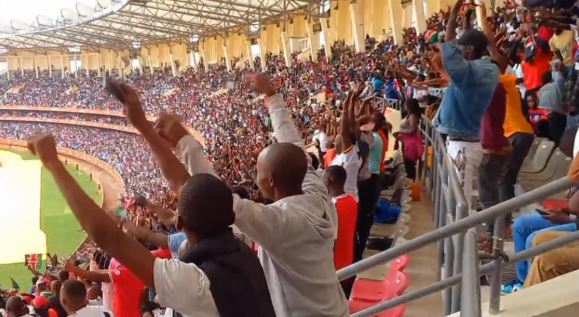

For the past fortnight, Moi Stadium, Kasarani, has been trembling with life, a living pulse under the Nairobi sky.
But twice, the iconic facility — usually a sanctuary of dreams — became a stage of chaos.
Fans surged like waves, hearts pounding, voices roaring, their footsteps hammering in feverish rhythm.
They came to witness Harambee Stars face Morocco’s Atlas Lions at CHAN 2024, but the excitement spiralled into fear.
CAF’s warning had come before, clear and firm: control the crowds, or face consequences.
But as fans pressed against overflowing gates, and panic replaced jubilation, the warning became reality. Injuries mounted, panic spread like wildfire, and the stadium’s magic was replaced by terror.
The Football Kenya Federation (FKF) now faces the repercussions: a hefty fine, a stark reminder that passion without planning can devastate.
This is not just a monetary penalty; it is a mirror reflecting lapses in governance, safety, and responsibility. Kenya, a proud football nation, has been reminded that the beautiful game demands order as much as it demands heart.
Kenyan fans are legendary—fiery, vocal, and loyal. Their energy is the heartbeat of every match, the rhythm that drives Harambee Stars forward. But a fire left unchecked can burn everything in its path. Absolutely!
The Angola match earlier had shown the cracks: overcrowding, stampedes, and injuries. FKF’s failure to implement corrective measures made Kasarani a tinderbox.
CAF’s fine is both a punishment and a plea: respect the rhythm of football, protect the fans, and honour the game.
This is not just about a stadium or a match. It is about national pride and global perception. Hosting international tournaments requires meticulous planning, firm governance, and unwavering commitment to safety.
CAF’s sanction reflects Kenya’s moment of reckoning: a call to act decisively before passion turns into tragedy.
The Surge That Shook Kasarani
Picture it: terraces overflowing, chants like thunder, gates jammed, and fans pushing desperately to join the tide. Excitement had transformed into a perilous wave. The stadium, alive with energy, became a dangerous current. Fans’ love for the game is undeniable, but love alone cannot prevent disaster. It must be guided, managed, and protected.
Otherwise, the stadium becomes a monument to chaos rather than celebration. A crucible for reform. Within this chaos lies a rare opportunity. FKF can take the fine as a catalyst, a spark for change. Electronic ticketing, controlled access, trained marshals, and robust security must replace complacency.
Kasarani can once again become a temple of joy, where passion flows safely, and the world marvels at Kenyan football. CAF has sounded the drumbeat: safety is sacred. FKF must answer with action, turning penalty into progress, chaos into order.
East Africa’s heartbeat must remain strong, a rhythm of pride, culture, and footballing excellence.
Kasarani still echoes with the roars of fans, the thunder of drums, and the pulse of the game. But the lesson is seared into memory: excitement without discipline is fragile, passion without control is perilous.
CAF’s fine is not just a sanction—it is a symphony of warning, a crescendo demanding respect for the game, its players, and its fans. Kenyan football must rise to the occasion, transforming lessons into legacy.
As the floodlights dim and the last chants fade, Kasarani whispers a solemn truth: “Protect the rhythm, honour the passion, safeguard the game. Only then will our football soar.” CAF has drawn the line. Kenya must now dance to its beat.













